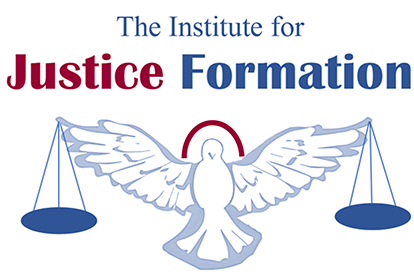Inez Tuck, MDiv, PhD, IJF Advisory Board Member
I’m shocked, disappointed, saddened, and outraged over the recent mass shooting in Boulder, Colorado. Innocent lives were taken by one person with an automatic pistol. We mourn across the nation for these loss lives. These victims were simply going about their daily lives in an ordinary public space when their lives were taken. We feel the pain of these families. Survivors and by-standers are changed forever. This shooting reminds us of the Las Vegas assault in 2017 which accounts for the largest number of deaths of 58 persons excluding the perpetrator.
 The recent victims were primarily white citizens from various backgrounds and ages and the loss of their lives is disheartening. This is not always the case as sometimes there is mass killing of persons from minority groups or those that are marginalized or seen as vulnerable. We recall the murders of 10 African Americans at Emmanuel AME Church in Charleston, South Carolina in 2015, the deaths of 22 Latinx persons at the Walmart in El Paso, Texas in 2019, members of the LGBTQ community in an Orlando nightclub in 2016, and the 11 murders at the Tree of Life synagogue in 2019. Let’s not forget the mass shootings at schools and universities that started with 16 deaths at the University of Texas in 1966, 13 Columbine deaths in 1999, 32 deaths at Virginia Tech in 2007, 27 elementary school children at Sandy Hook in 2012 and in 2018, the 10 deaths at Santa Fe and 17 at Stoneman Douglas High schools. Asian American women were among the 10 recently murdered in the Atlanta, Georgia suburbs. All are examples of targeted, mass murders and not simply the intentional killing but random act.
The recent victims were primarily white citizens from various backgrounds and ages and the loss of their lives is disheartening. This is not always the case as sometimes there is mass killing of persons from minority groups or those that are marginalized or seen as vulnerable. We recall the murders of 10 African Americans at Emmanuel AME Church in Charleston, South Carolina in 2015, the deaths of 22 Latinx persons at the Walmart in El Paso, Texas in 2019, members of the LGBTQ community in an Orlando nightclub in 2016, and the 11 murders at the Tree of Life synagogue in 2019. Let’s not forget the mass shootings at schools and universities that started with 16 deaths at the University of Texas in 1966, 13 Columbine deaths in 1999, 32 deaths at Virginia Tech in 2007, 27 elementary school children at Sandy Hook in 2012 and in 2018, the 10 deaths at Santa Fe and 17 at Stoneman Douglas High schools. Asian American women were among the 10 recently murdered in the Atlanta, Georgia suburbs. All are examples of targeted, mass murders and not simply the intentional killing but random act.
Mass shootings and mass murders, the killing of all victims at once or multiple deaths over time and settings, happen again and again across the country. The 10 murders by the DC snipers in 2002 over 22 days were examples of mass murder. This recent deaths in Boulder, Colorado was the third mass shooting for that state, an unfortunate status and clearly not one desired. Close to home, Virginia has two such incidents in Blacksburg and Virginia Beach. Over 600 persons have died in mass shootings at the hands of a lone person with a powerful weapon.
While these deaths are horrendous, most gun deaths in the United States happen in our neighborhoods, in urban and rural areas. In 2020, even during the pandemic, there were over 20,000 homicides and 23,000 suicide deaths using guns as reported by the Gun Violence Archive. In 2019, FBI data indicated that there were 15,000 homicidal deaths and over 10,000 of these were due to firearms. Not only is death the result of guns, but there were also 430,000 violent crimes in 2019 across the country and approximately 200,000 instances of firearms used in the commission of those crimes. This pattern is the reason that the CDC lists homicide as the leading cause of death for African Americans males under age 44 or the fourth cause for all African American males. The homicide death rate is also very high among Latino males.
And what do we lose with these deaths of persons due to gun violence and even the loss of productive lives of those who perpetrate these crimes? We lose the potential of the human spirit, we lose the possibility of greatness from each of them. We don’t know who they were or what they could have been if they had a full life. Their families miss their love, support and
companionship. Their untimely deaths are senseless. The loss of life due to gun violence is unacceptable regardless of the circumstances.
What motivates a person to kill another human being and what accounts for these deaths? Is it mental illness, delusions of persecution and paranoid ideations? Is it the lack of mental health treatment or failure to follow prescribed treatment? Is it due to hopelessness, depression, or a sense of worthlessness? Is it the outcome of bullying or disrespect? Is it the inability to control the actions of others and is in response to the loss of power? Is it about vengeance or retribution? Is it the failure to manage one’s anger or impulse control? Are gun deaths the result of a business deal gone awry? Is homicide done at the hands of a sociopath with no sense of empathy or care for others? Is it selfishness and self-righteousness? Is it racism or hatred of others? Is it PTSD that is suffered after seeing constant trauma throughout childhood? Is this domestic terrorism?
All the reasons listed for gun violence and deaths are true and may be the motivation for the perpetrators. If these causes motivate perpetrators, then how do we stop the carnage and change the outcome? Dying by gun is a complex phenomenon and not easily resolved. We can increase access to mental health care, dismantle gangs, provide more police protection to make safer neighborhoods, change poverty rates, teach anger management, mentor youth and encourage violence prevention. We can support battered spouses and prevent domestic violence. All of these actions can and are being done and yet the numbers of deaths by guns continue to climb with victims of all ages and races.
What is the common denominator in all these incidents? The gun! This piece of metal is manufactured in several states in many different models by the profitable companies of Remington, Springfield Armory, Sturm Ruger, Colt, Browning, Smith and Wesson, Mossberg and others. This metal object, whether a handgun or an assault weapon with rapid trigger mechanisms and high capacity magazines are sold in every state, in gun stores and at gun shows with some regulatory differences. These metal devices with all their innovations are easily and miraculously able to flood the illegal and illicit markets as well and are available for purchase there. Guns are also stolen from licensed owners. Guns are used by their owners as the instrument of death.
Dying by guns cannot happen without guns. What would happen if we kept guns out of the hands of young African American or Latino males, out of the hands of disillusioned young adults, and from irate spouses and family members. Kept guns from those in a mental health crises thinking about homicide or suicide. What would happen if guns were not seen as the vehicle for solving problems and unable to become the conveyer of death. We have more guns in this country than any other country. The United States has the highest per capita gun ownership in the world. Gun deaths seem to matter only a few weeks if there are mass casualties and only 1-2 newscasts or headlines for those dying in our communities. Of course, they matter greatly to families and friends.
Since most of us purchase our food in grocery stores, guns are not needed for sustenance but may be desired for recreational use and for self-protection. These are probably the only
acceptable civilian use of firearms and neither are reasons for the sale and distribution of assault weapons or military style firearms in civilian hands that are designed to kill human beings. Our fascination with making all things faster, better and more powerful seems to apply to guns and reflects our arrogance, our urge for dominance and superiority and represents a sense of privilege. We should ask, should guns be another expression of those desires?
There are approximately seven co-victims or survivors of each of these deaths. These are the families and friends that suffer and whose lives are never the same. The emotional, psychological and spiritual costs are high. This cost is not limited to a few as there is a wide societal impact. There is much in the literature regarding the consequences of gun violence. A recent article indicated that the annual cost of gun violence was $229 billion with $8.6 billion being prison costs and the remainder, the costs for the survivors. Gun militarism and gun populism are challenges to overcome.
Victims of gun violence are not persons that are less valued or expendable. The lack of our moral and political action to disrupt this pattern of violence is a callous view of fellow human beings. The unwillingness to change or to seek reform says a lot about us and the human condition. Is this really the message that we want to send? Is this really a just response from good people to a public health crisis? If we really searched the depths of our souls and examined our values as a society, would we still remain hesitant to seek bold solutions? If we are to reduce these fatalities, our hesitancy must change, and we must be willing to stop the carnage. God willing for a loving response, I hope that we have not ventured so far in our own individualistic and narcissistic perspectives that we give up on the idea of stopping dying by guns.
There is a role for churches and religious institutions, social service agencies, police departments and the criminal justice system, our schools and colleges, and local, state and national governments in reducing gun violence. There is a need for families and communities to urgently support our youth, immigrants, persons that are mentally ill and others that are disenfranchised who might commit gun violence and prevent its occurrence but let us be clear that these are not the only perpetrators of gun violence. Those who hate or are radicalized also are perpetrators. Hatred, racism, white superiority and privilege must be eradicated to reduce gun deaths as well.
Embracing the public health perspective regarding the impact of gun violence and promoting the social determinants of health and perhaps of healthy communities are necessary steps for going forward. Gun businesses and manufacturers contribute to the volume and type of guns available to the public. While not altering their military contracts as core business, they have a critical role to play in solving this humanitarian problem as well. It is not only socially responsible for us to curtail these deaths but there are so many other economic and moral reasons for doing so. Solving dying by guns requires people to get involved, to become proactive, to promote legislation and gun laws, to examine self-interests, and to really show that we care about others and value their lives. Dying by guns must stop and requires all our efforts to eradicate it.



Recent Comments